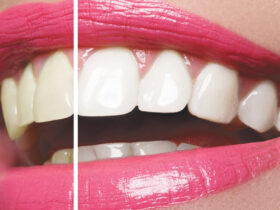By DeAnn Kamp, Realtor®
 When we talk about cancer prevention, much of the focus is on lifestyle. Diet, exercise, and personal habits are major contributing factors in the development of many common cancers. However, environment also plays a large role in cancer statistics. Unfortunately, when we talk about environmental cancer risks most people tend to only see the big picture, focusing on pollution, radiation, or toxic waste disposal. But there are many cancer-causing agents that might be lurking closer to home. Many of the household products that we take for granted may actually be increasing our risk for developing cancer. Fortunately, there are steps we can take to cancer-proof our homes. But before we can do that, we have to identify the cancer causing household products that we need to avoid.
When we talk about cancer prevention, much of the focus is on lifestyle. Diet, exercise, and personal habits are major contributing factors in the development of many common cancers. However, environment also plays a large role in cancer statistics. Unfortunately, when we talk about environmental cancer risks most people tend to only see the big picture, focusing on pollution, radiation, or toxic waste disposal. But there are many cancer-causing agents that might be lurking closer to home. Many of the household products that we take for granted may actually be increasing our risk for developing cancer. Fortunately, there are steps we can take to cancer-proof our homes. But before we can do that, we have to identify the cancer causing household products that we need to avoid.
Household Cleaners
We all want to keep a clean house, both for appearance sake and for our own good health. But many of the common household cleaners we have relied on for years actually contain harmful chemicals that have been linked to a variety of health issues, including asthma, cancer and neurological disorders. Many common household cleaners and detergents contain toxic chemicals, such as Acetone, Diethanolamine, Ethoxylated Nonyl Phenol, and Methylene Chloride. The names of the chemicals alone are a good indicator that we really don’t want these products in our homes.
A majority of these household cleaners can be replaced with all natural alternatives, such as hydrogen peroxide, baking soda, and white vinegar. For example, a general all-purpose cleaner can be made from simply combining one cup of white vinegar with one cup of water. A simple solution that can handle most common kitchen and bathroom messes and yet is perfectly safe for the home and family.
Nonstick Cookware
The Teflon revolution was major news in the 1950’s and 1960’s, and housewives all around the country were trading in their cast-iron skillets for new-fangled non-stick cookware. Unfortunately, what we didn’t know at the time was that the main chemical in those non-stick coatings, perfluorooctanoic acid (PFOA), was carcinogenic. We know better now, but many people are still using non-stick cookware on a regular basis. Now is the time to get rid of any chemical based non-stick cookware in your kitchen, and switch to traditional glass or cast-iron, or try some of the new chemical free non-stick cookware that uses ceramic or titanium as a surface coating.
Cosmetics
The majority of over the counter cosmetics are full of potential carcinogens. The chemicals used in many so-called “health and beauty” products are actually toxic, and over time can have a disastrous effect on our health. Again, just a list of the chemicals used in most cosmetics is indicative of the health hazards they contain. Consider the following common chemicals found in most cosmetics:
• Formaldehyde
• Hydroquinone
• Pheylenediamine
• Mercury
• Lead
• Coal Tar
• Diethanolamine
Fortunately, there are healthy alternatives out there. All natural cosmetics are now available, and offer an alternative to the chemical dependent products that dominate the marketplace. Also, look for fragrance free products, as the term ‘fragrance’ typically indicates the use of chemical additives.
Pesticides and Weed Killers
Many common chemicals in pesticides marketed for home use have been linked to instances of cancer. Particularly disturbing is the apparent link between these pesticides and weed killers and the occurrence of brain cancer in children. Carcinogenic chemicals found in many common lawn and garden products include chlordane, tetrachlorvinphos, dichlorvus, and permethren. Again, even the ingredient names should give one pause. The healthy alternative to using pesticides and weed killers on your lawn is to learn to garden organically. Pull weeds by hand, and use natural pest repellents whenever possible. Also consider introducing natural predators into your home garden that will feed off of the pests but will leave the plants themselves untouched.
These are just a few examples of the carcinogens that can be lurking in our household products. If cancer prevention is to be effective, it must extend beyond diet and lifestyle to include the environment we occupy most – our own homes. Now is the time to take a good look in your cupboards and garage for cancer causing products that may be threatening the health of you and your family.
Home Buyers Marketing II, Inc.
DeAnn Kamp – Broker/Realtor® GRI, CSMS
239.398.5527
www.DeAnnSellsFloridaRealEstate.com
DeAnnKamp@gmail.com









